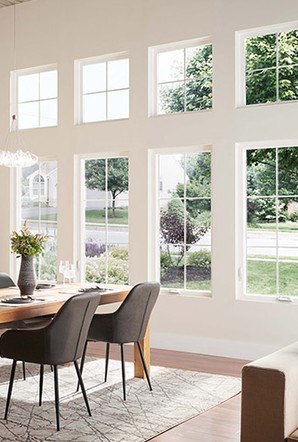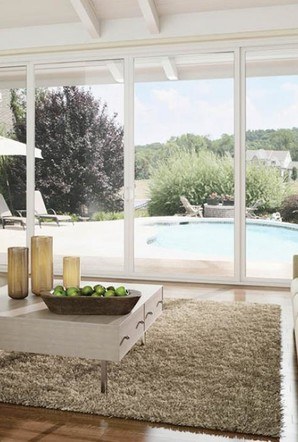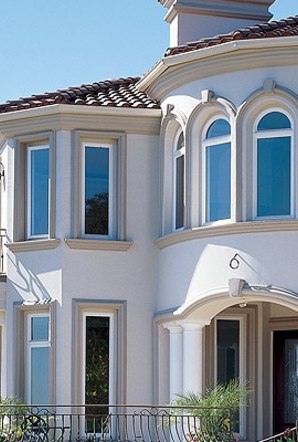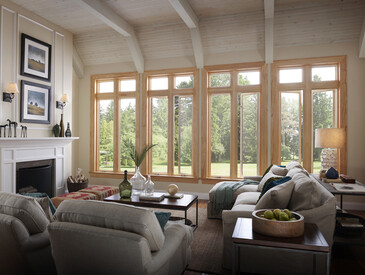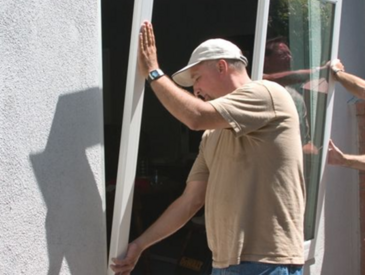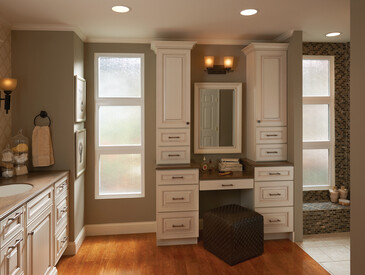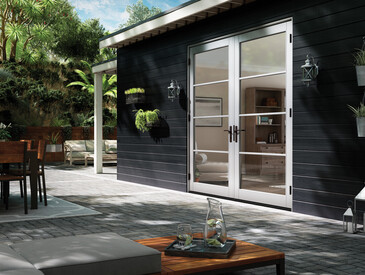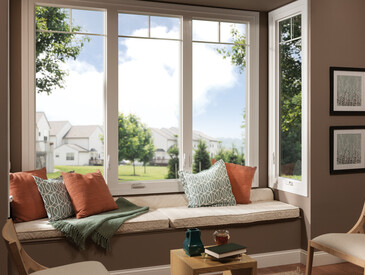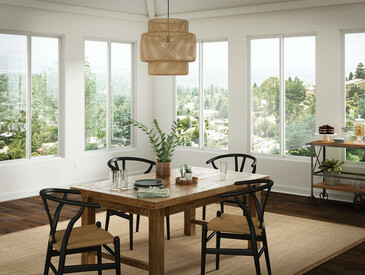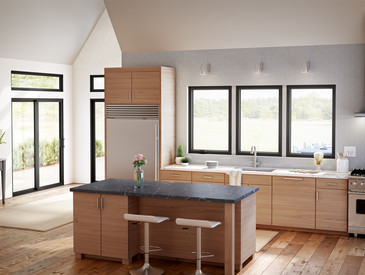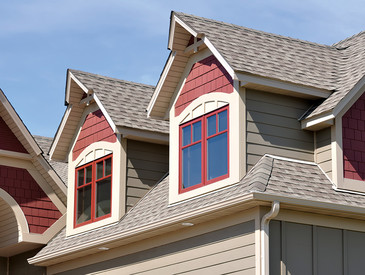When you're planning a window project, choosing the right material makes all the difference in your budget, maintenance needs, and long-term satisfaction. Vinyl windows have become a popular choice, but they come with both advantages and drawbacks. As you research your options, learning more about vinyl windows pros and cons should be at the top of your list.
What Are Vinyl Windows?
Vinyl windows have frames made from PVC (polyvinyl chloride), a strong and weather-resistant plastic material. To make the vinyl window frame material, manufacturers mix raw PVC with additives like titanium dioxide and impact modifiers for strength and UV resistance. They build the frames with multiple internal chambers that trap air for insulation, while steel reinforcements in key areas add stability. Finally, they fuse the frames together at the corners, creating a single, durable piece that holds its shape through temperature changes.
This unique manufacturing process means that the pros and cons of vinyl windows are quite different than they are for other frame materials. We’ll go over them next, but we always recommend talking to a professional about your options.
What Are the Benefits of Vinyl Windows?
Before you decide on vinyl windows, let's look at what makes them stand out from other materials like wood, aluminum, and fiberglass.
Durability and Low Maintenance
One of the biggest benefits of vinyl windows is that they’re extremely durable. Vinyl is non-corroding, resists moisture, and performs well in most weather and environmental situations. MILGARD also adds ultraviolet light stabilizers to prevent sunlight from degrading the material and causing cracking, so the finish lasts for years. Plus, vinyl windows are easy to clean by simply wiping them down with a damp cloth and a solution of mild soap and water.
Color Options
Until recently, the manufacturing process for vinyl windows limited their colors. With many brands, vinyl windows and doors are still only available in white and tan. However, MILGARD developed a new coating technology that includes painted exterior vinyl finishes in colors like classic brown and silver, in addition to the standard white and tan. You’ll even find the ever-popular modern black frames for certain products.
Affordability
Vinyl windows often cost less than other window materials. That’s because it simply costs less to produce than wood or fiberglass, so manufacturers can make vinyl windows quickly and efficiently. Lower material and labor costs mean more savings for your project budget.
Energy Efficiency
One of the most common questions we hear is, “Are vinyl windows energy efficient?” The answer is yes – vinyl naturally resists heat transfer, which helps keep your home cooler in summer and warmer in winter. Quality vinyl windows also come with multiple chambers inside the frame that trap air, adding extra insulation. You can boost these built-in benefits by choosing energy-efficient options like Low-E glass or gas-filled panes.

What Are the Disadvantages of Vinyl Windows?
Of course, any discussion of the pros and cons of vinyl windows has to include their limitations. Here’s what to consider before making your choice.
Limited Shapes and Sizes
The vinyl window manufacturing process works best when they can be produced in large batches, which means they typically only come in standard rectangular shapes and sizes. Specialty shapes and oversized windows are much more difficult to produce – while you may be able to order them, the higher production costs often cancel out the main advantage of vinyl: affordability.
Limited Interior Customization
While there are plenty of color options on the market for modern vinyl windows, keep in mind that you can’t paint or stain them. This may be important for homeowners who want to match the interior of the frame to their home’s decor. MILGARD solves this challenge by offering neutral interior colors like black, tan, and white that blend with most home styles, while providing a greater variety of exterior color options.
Inconsistent Quality
So, are vinyl windows good? Generally, yes, but not all vinyl windows offer the same level of performance. The manufacturing process strongly impacts durability and function. To make sure you benefit from all the advantages of vinyl windows, look for manufacturers like MILGARD who back their products with solid warranties and use quality materials like titanium dioxide and UV stabilizers.
Discover Quality Vinyl Windows from MILGARD
As you research vinyl windows pros and cons, remember the importance of the manufacturer you choose. MILGARD vinyl windows stand apart through advanced engineering and careful manufacturing. To ensure top-quality vinyl products, MILGARD extrudes its own frame material using a unique formula, and builds its windows to order. Each window series endures a series of rigorous tests to ensure product performance, including structural, thermal, water, and forced entry testing.
Ready to explore your options? Find a MILGARD Certified Dealer to walk you through our vinyl window collection and help find the perfect fit for your project.













